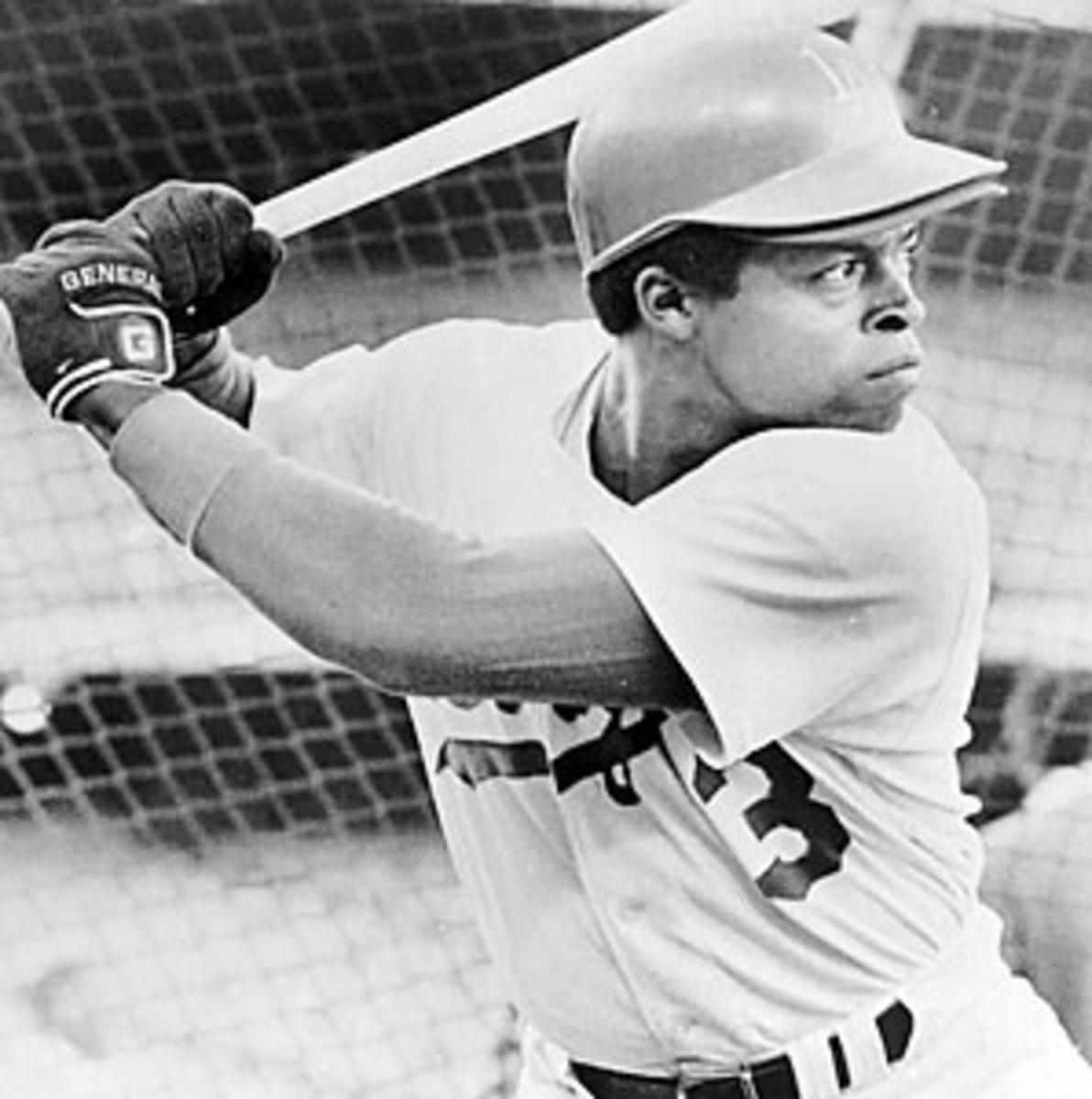Documentary examines struggle of gay baseball player Glenn Burke
Don't ask. Don't tell.
It gets better.
Those are some of the phrases of the fall. The battle over "Don't ask, don't tell" -- the controversial clause for gays serving in the military -- rages on, a 16-year quagmire. The Itgetsbetter.com project was launched in September in the wake of a rash of suicides among gay youth who were bullied.
The struggle for gay civil rights continues in our society. In some institutions, such as the military, it's a loud battle.
In others institutions, it's not even a whisper. Like in men's professional team sports.
This week in San Francisco -- while World Series euphoria is still flowing in the streets -- baseball's darker side is being explored. A revealing documentary produced by the local Comcast affiliate -- Out: the Glenn Burke Story --premieres Wednesday on both the cable sports channel and at the Castro Theater in San Francisco's iconic gay neighborhood, the Castro.
Glenn Burke was one of the great high school athletes to come out of the Bay Area in the 1970s. He was a top prospect for the Los Angeles Dodgers, a starter in the 1977 World Series, a player for his hometown Oakland A's.
And he was openly gay.
The documentary is a stark look at the last taboo in professional male team sports. Drugs? Gambling? Domestic abuse? Dog fighting? Almost anything can and has been forgiven.
But 33 years after Burke led an openly gay lifestyle on the L.A. Dodgers, no active player on a professional men's sports team has come out.
"I hope that at least we can provoke some discussion," said the film's executive producer Ted Griggs, who is also the general manager of Comcast SportsNet Bay Area.
Griggs grew up on the east side of the San Francisco Bay and heard about Burke's athletic prowess, as both a basketball and baseball star at Berkeley High. When Griggs played pickup basketball in East Bay playgrounds, he would hear players say, "that's a Glenn Burke move."
"The name kind of stuck in my head," Griggs said. "And when he passed away, I thought, that's a story I'd like to explore. And I stuck his obituary in a manila folder."
Griggs and his producers got Burke's former teammates to open up. Former Dodgers players like Dusty Baker, Reggie Smith and Davey Lopes make it clear on film that they knew exactly who Burke was. And while they were surprised and at times uncomfortable, their acceptance of him as a teammate comes across on film.
"You can tell they loved him," Griggs said. "There's a look in their eyes. A kind of pleading for understanding. That you don't know what it was like in 1977."
Burke's former teammates knew that his lifestyle was trouble.
"At that time period it was the kiss of death for a ballplayer," Smith says on camera.
Burke is portrayed as a mercurial personality, one who could light up a room or get in a fistfight. He was on the cultural cutting edge: his teammates credit him with inventing the high-five and for introducing them to a kind of spoken poetry he learned on the streets of Berkeley -- long before rap was mainstream.
Burke came up from the minors onto a supremely talented Dodgers team, with one of the most conservative organizations in baseball. The documentary details the Dodgers clumsy attempts to deal with Burke, including the story that the team offered him $75,000 to get married. Burke's reply: "I guess you mean to a woman." The film also touches on rumors that Burke dated Tommy Lasorda's son, who later died of complications of AIDS. Tommy Lasorda, Jr. was estranged from his father, who publicly denied his son's homosexuality.
Griggs tried unsuccessfully to interview Lasorda for the documentary. But he was pleasantly surprised at how little resistance he found among Burke's former teammates.
"I was surprised how many of them were willing to talk and how much they loved him," Griggs said.
The phrase It Gets Better didn't apply to Burke. Seven months after starting the first game of the '77 World Series, he was traded to the Oakland A's for Billy North
"The Dodgers knew," Baker says in the documentary. "That's why they traded Glenn."
At that time the A's were baseball purgatory and Burke struggled. Billy Martin bated him with anti-gay slurs. Much of the clubhouse shunned him.
"The tension in the clubhouse was so thick you could cut it with a knife," Mike Norris says in the film.
Burke was sent to the minors despite the lack of talent on the A's major league roster. He eventually decided to quit baseball at 27
"They ran him straight out of the game," says A's teammate Shooty Babitt.
A few years later, Burke came out publicly to Inside Sports magazine and the Today Show. Though Bay Area baseball was a disaster for him, living in the Bay Area allowed him to be himself. He became a hero in the gay community, competing in the Gay Games.
But his life unraveled into high-risk behavior of drugs and crime. After being hit by a car, Burke's health declined. He was diagnosed with AIDS in 1994 and died a year later at 42.
Burke didn't adhere to baseball's own Don't ask, Don't tell code. Griggs said his mentality seemed to be, "I am what I am and if you don't like what I am, that's your problem."
But Burke wasn't accepted. Thirty years after Jackie Robinson broke baseball's color barrier Burke broke the gay barrier, living an out lifestyle in the major leagues. But in the 33 years since no one has followed in his footsteps.
We may think we're all more enlightened these days. But would anything be different for Glenn Burke now?






